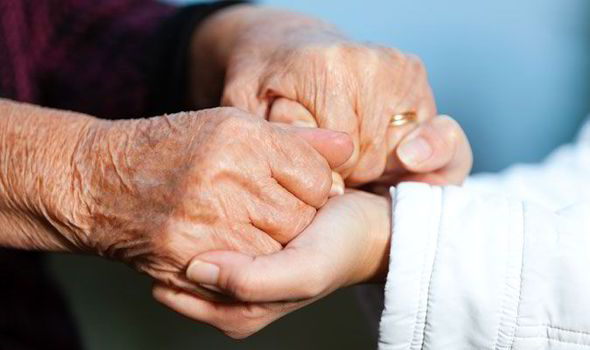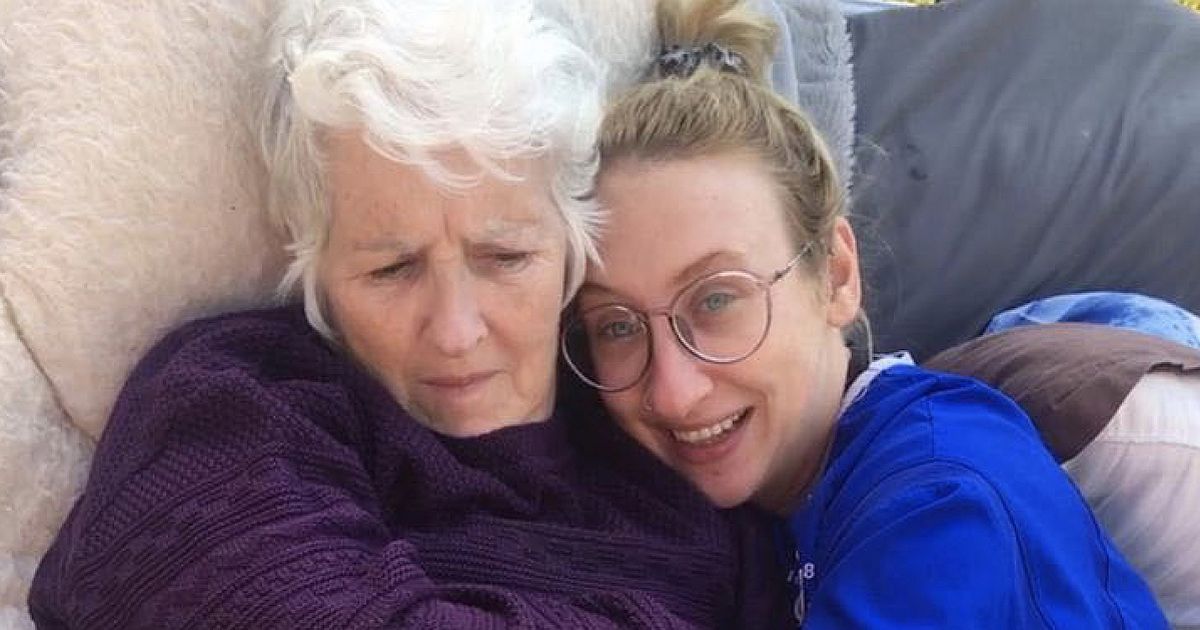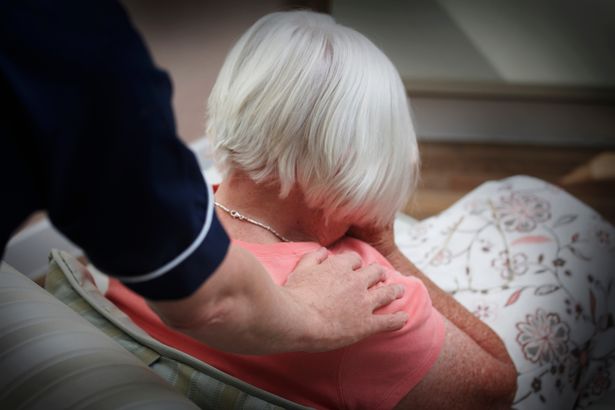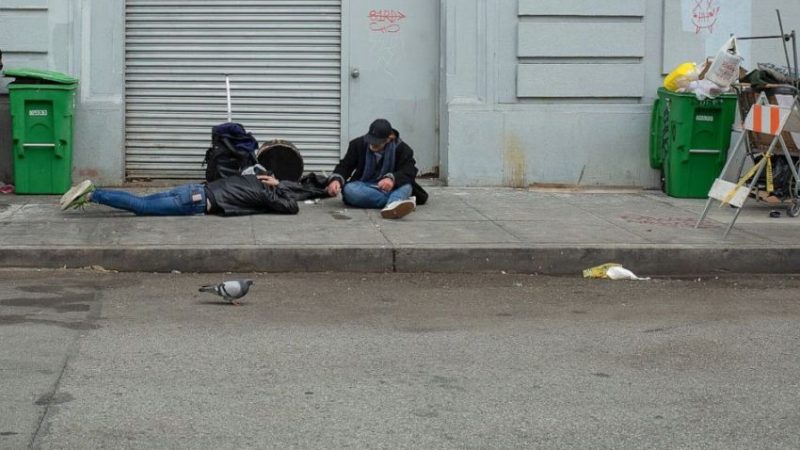Dementia sufferers the forgotten victims of Covid as they face anxiety and confusion

Few people have found the past 12months easy, but for those living with dementia the pandemic has taken a particularly heavy toll.
While a quarter of those who have died of Covid-19 also had dementia, a survey concluded that lockdown has had a shocking impact on those still living with the disease.
Three quarters of people whose relatives have dementia say they have noticed an increased deterioration in their condition since last March, including additional confusion and memory loss.

Almost 40 per cent say their relatives have suffered an escalation in anxiety, while two thirds of those questioned say they are not receiving sufficient support in dealing with this accelerated decline.
Dr Hester Le Riche, chief executive and founder of health tech brand Tover, which commissioned the study, says: “Whilst the pandemic continues to be a very difficult time for all, mitigating its effects on people with dementia should be a public health priority.
“This group – both those who are in care homes and those who are not – are facing a myriad of unique challenges, including social isolation and limited physical activity every single day.”
Rebecca Corden, 28, from Wirral, Merseyside, is not surprised by the findings. She has seen first hand how lockdown has taken its toll while caring for her mother Susan, 60.
“For the past three-and-a-half years my dad and I have been caring for my mother, who has vascular dementia and early onset Alzheimer’s disease, but she has seen a big decline over the last 12 months,” says Rebecca.
“With this disease, things are always going to be headed in one direction, however it definitely seemed to speed up once the pandemic began.”
Rebecca feels the loss of her mother’s social life has significantly impacted her wellbeing.
“Keeping mum entertained throughout lockdown has been incredibly difficult,” she says.
“Over the months she has become more agitated and angrier, or sometimes altogether unresponsive.
“Before this all happened, we would take her to the pub every Thursday for tea with my brother and would usually see her mum and sister there, too.
“She isn’t able to understand why she can’t go anywhere or see her family now.”

But the effects are not just psychological, says Rebecca – being stuck inside has affected her mum’s walking and she can no longer cover more than a few steps on her own.
“Most days we used to take her out for a short dog walk, and she enjoyed us taking her to the shops once or twice a week, but most people would not socially distance and it was difficult to manoeuvre her out of their path.
“Our focus has been keeping her safe, considering her already struggling health and vulnerability to Covid-19.
“Losing mobility and balance is part of the disease and though we do try and keep her as active as we can at home and in the garden, I do feel if her outings hadn’t been taken away it may not have happened as quickly as it did.
“Getting her up and down stairs has become a painstaking task.”
Susan Mitchell, head of policy at Alzheimer’s Research UK, says: “We know that people with dementia have been hit particularly hard by the pandemic and this has been a frightening time for them and their families.
“Isolation brought on by lockdown and the need for social distancing have exacerbated an already challenging situation, while the loss of routine and companionship from loved ones has also made life more difficult for people with dementia, especially those living in care homes who have been unable to see friends and family.
“It would be fair to assume that these factors could be leading to the rapid decline we’re seeing in people with dementia during the pandemic, though more research is needed.”
As for those looking to keep loved ones as well as possible, Susan says: “During this difficult time we strongly recommend that people make sure they access the medical support they need, as the NHS is still open for business.
“And where possible, stay physically and mentally active and keep connected to others, safely.”
Families are finding this is easier said than done, sadly.
“Since we can no longer take Mum out, our days are quite limited,” says Rebecca. “Mum can no longer read or write or follow TV and films, but she does enjoy and engage with music, so we play it near constantly to try and keep her entertained – I have different playlists depending on mood and behaviour.”
Whilst verbal and physical interaction are key to slowing the effects of dementia, game play therapy is also an important tool to cut through apathy and create genuine moments of happiness, yet the Tover study found that only a quarter of those asked said their relative with dementia has access to activities designed to aid mental stimulation.
“It is vital that we look to the solutions more readily available that can be implemented alongside the restrictions of the pandemic,” says Dr Le Riche.
“This includes games and services that provide cognitive stimulation, such as the Tovertafel (Magic Table in Dutch), our contactless interactive light game, designed specifically for people with dementia to help stimulate movement and social interaction.
“There is a way to go until we as a nation are able to prioritise this kind of support and adopt a more holistic approach so these individuals can maintain a respectable quality of life.
“Right now, it is crucial that their mental wellbeing is not overlooked whilst we battle to protect their physical health from the virus.”
For now, Rebecca is grateful she has managed to find support online.
“I’ve found the Facebook groups for carers and those who have loved ones affected by dementia a useful source of information,” she says. “It’s a relief knowing we’re not the only ones going through this.
“Since activities are pretty limited, I tend to sit and hold Mum’s hand a lot. I’ve read that physical touch can mentally stimulate and make her feel less alone. I’m so grateful that I can have those moments to do that.
“There are so many families who cannot be with their loved ones in care homes or who have barely seen them this past year.






